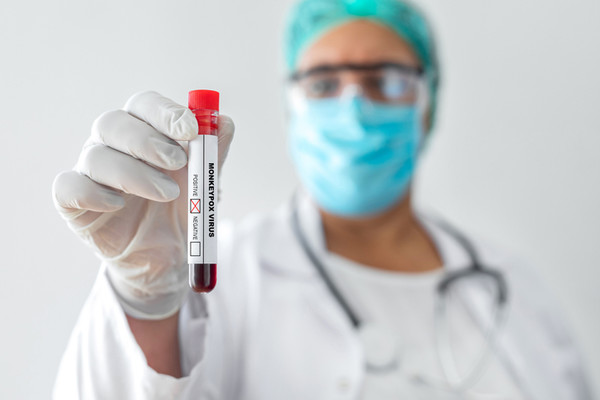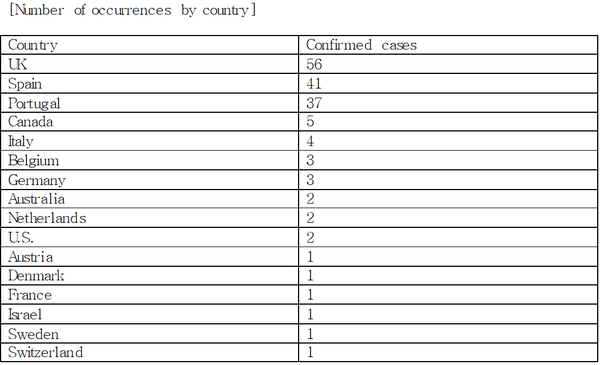Monkeypox is spreading to the Middle East following Europe and the U.S., but the health authorities said they had established a test and diagnosis system to prepare for a possible outbreak in Korea.

"We completed developing and evaluating monkeypox’s diagnostic tests and reagents back in 2016," the Korea Disease Control and Prevention said Monday. "If Korea confirms any monkeypox cases, the KDCA will effectively block the virus by quickly identifying patients."
The agency stressed that its real-time-polymerase chain reaction (PCR) test method has a sensitivity that can detect up to 100 viruses.
"Currently, the test is only available at the KDCA. However, it is meaningful because we will be able to identify patients quickly and prepare a system that can effectively block the epidemic," the agency said, adding that it might designate monkeypox as an overseas infectious disease subject to management.
Due to the increase in overseas travel and the relatively long incubation period of up to 21 days, we cannot rule out the possibility of an inflow of monkeypox," the KDCA went on to say.
Health experts also noted that although monkeypox is spreading worldwide, the threat level is nowhere near the Covid-19 virus due to the low transmission power of monkeypox.
However, the experts added that it would not be easy to vaccinate the public against the monkeypox immediately.
"Korea may need to implement vaccination if the epidemic spreads further, but it is difficult to decide whether to vaccinate people as a precautionary measure as there are still a small number of cases worldwide," said Eom Joong-sik, an infectious disease professor at Gachon University Gil Medical Center to News 1, a local media outlet. "Even if we can use smallpox vaccine reserves, receiving vaccines is another matter."
The KDCA said that it has a stockpile of 3.52 million smallpox vaccines with a prevention rate of about 85 percent against monkeypox.
"Unlike influenza and Covid-19 vaccines, the smallpox vaccine requires trained medical professionals to administer it, and the administration method makes it impossible to inoculate a large amount in one day," Eom said.
Professor Kim Woo-joo of the Infectious Disease Department at Korea University Guro Hospital also said, "As the smallpox vaccines currently in stock are for responding to the outbreak of smallpox with greater risks, health officials have to decide how much of the stockpile they would use."
"In addition, there are many factors to consider, such as selecting the vaccination target," Kim said.
According to the World Health Organization, monkeypox is a viral disease similar to smallpox, declared eradicated worldwide, only with weaker contagiousness and severity.
Symptoms include fever, chills, headache, lymph node edema, and a chickenpox-like blistering rash. The illness lasts for two to four weeks, with a hibernation period of six to 21 days, and most patients recover spontaneously. The current fatality rate is around 3-6 percent.
The disease is transmittable from person to person through contact with lesions and body fluids, saliva, or contaminated materials such as bedding.
According to Global.health, a group that gathers infectious disease data, 16 countries have confirmed 160 monkeypox cases.


